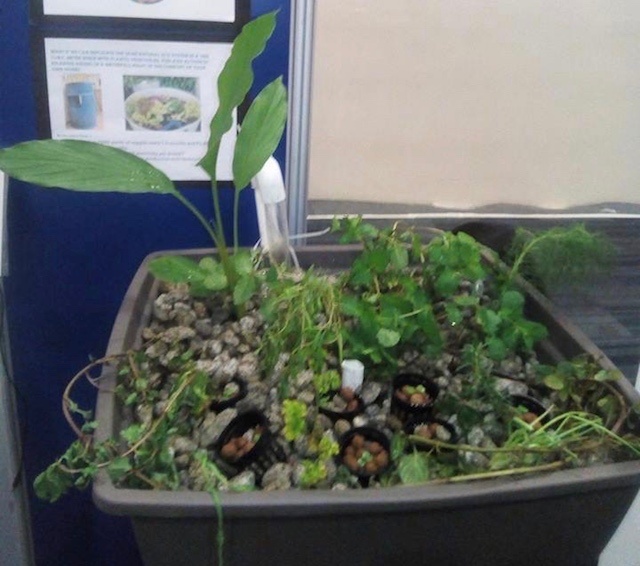Despite recent advances in food technology, hunger is still a big problem in our country. Over 7 million children experience hunger and malnutrition in the Philippines because of inadequate access to nutritious food, lack of nutrition education and poor health and sanitation services.
Robi del Rosario knows this problem too well, and has developed a novel way to address it: “Aquaponics” – the science of growing plants without soil in a way that almost anyone can replicate.
His Barangay Aquaponics project aims to help marginalized communities to solve one of their biggest concerns: the lack of access to healthy, nutritious food.
“The United Nations stated [that] to end world hunger, we need to have localized food systems. And we feel that aquaponics will be part of the future in how we produce food, because it’s not only sustainable, it will also help address our nutrition problem, especially the children,” Del Rosario told Rappler.
The simple system looks complicated but is actually pretty easy to replicate: a fish tank is positioned right below a grow bed, and waste generated by fish like tilapia and shrimp are converted to food for the plants by nitrifying bacteria. The plants, in turn, filters and recirculates the clean water back to the fish, where the cycle begins again.

According to Del Rosario, the system is very low maintenance – after it’s been setup, there’s very little to look after and maintain.
The system is also very efficient in terms of the space required and needed – you can have as much as 100 pieces of tilapia and shrimp as well as 50 plants like lettuce and herbs, all in a one-meter square. Total cost to start? Around Php 15,000.
Of course, Del Rosario faces unique challenges with his system, chief of which is educating communities how to setup and use his Aquaponics system.
To further spread the benefits of the Barangay Aquaponics system, Del Rosario said that his group is looking at potential partnerships with several companies as part of their corporate social responsibility programs. His project has also won the 2016 Hack Society workshop, as well as the Forest Foundation Philippines’ 2017 Pitch Fest.
Del Rosario’s buy one, give one social business concept where his group provides an aquaponics system to marginalized communities whenever anyone buys one from them, also spreads awareness about the benefits of Barangay Aquaponics.
The post Barangay Hydrophonics Can Potentially Solve The Food Problem In The Philippines appeared first on Good News Pilipinas.